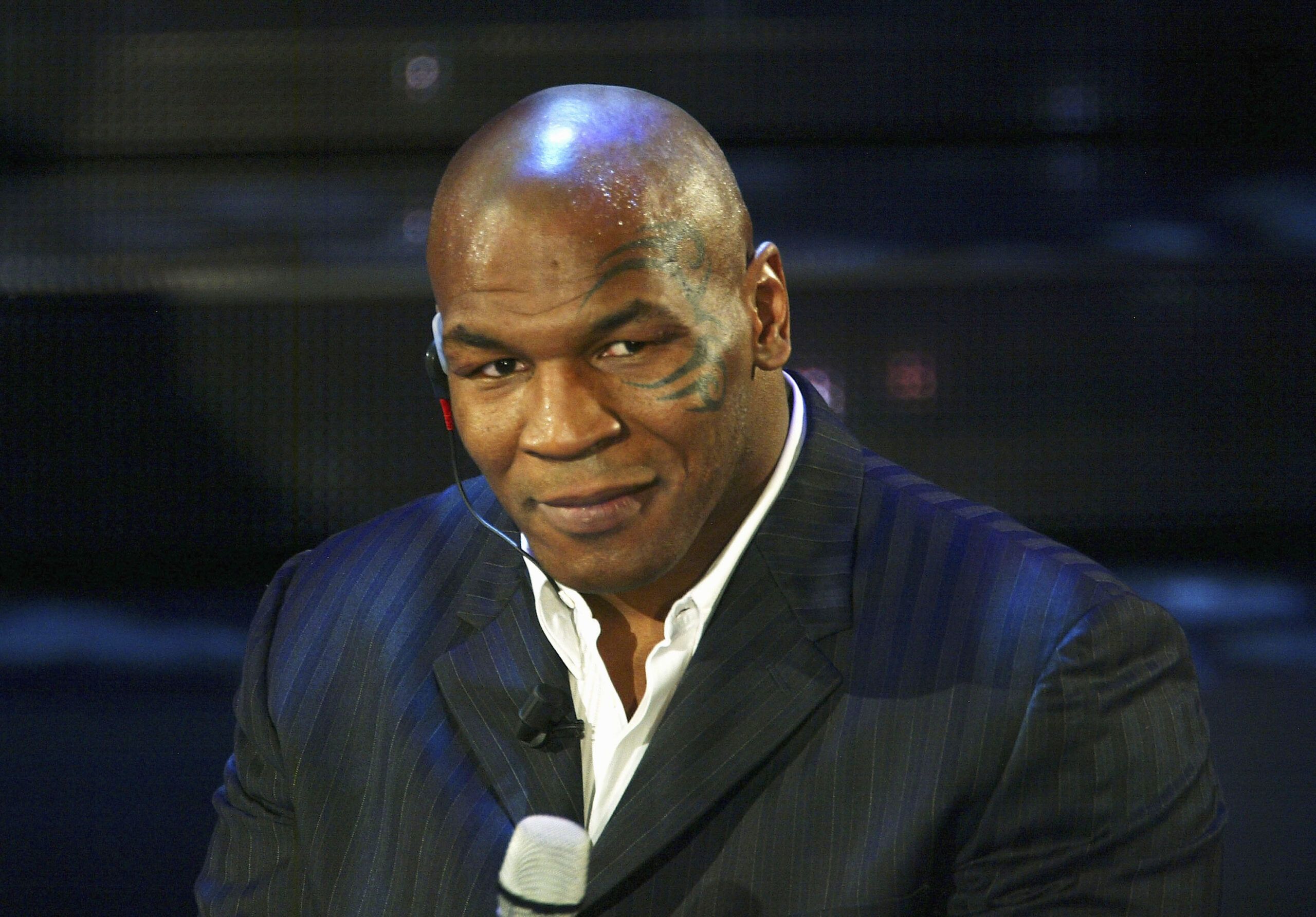From Mansions to Bankruptcy: The Tragic Fall of Mike Tyson’s Empire
Mike Tyson’s story is one of the most dramatic tales in sports history — a saga of unimaginable wealth, shocking downfall, and slow redemption.
Once the most feared boxer on Earth, Tyson’s punches were worth millions.

By the early 1990s, he had amassed an estimated $500 million fortune, making him one of the highest-paid athletes of all time.
But within a few short years, the man who lived like a king found himself drowning in debt, forced to declare bankruptcy, and stripped of nearly everything he had built.
Tyson’s journey from riches to ruin is a case study in how fame, excess, and betrayal can destroy even the strongest among us.
When Tyson first burst onto the boxing scene in the 1980s, he was a phenomenon — a 20-year-old heavyweight champion with terrifying power and a ferocity no opponent could match.
Under the guidance of his mentor Cus D’Amato, he rose from the streets of Brooklyn to global superstardom.
Endorsements, million-dollar fights, and the adoration of fans poured in.
By the late ‘80s, Tyson was earning more than $30 million per fight.
But success came too quickly.
The discipline that made him unstoppable in the ring couldn’t survive the temptations that came with celebrity.
Lavish spending became part of his image.
Tyson bought mansions in multiple states, fleets of luxury cars, gold bathtubs, exotic pets — including Bengal tigers — and spent money as if it could never run out.
He threw parties that cost hundreds of thousands of dollars and showered friends and strangers alike with gifts.
One of his former accountants once said Tyson would walk into a jewelry store and spend half a million dollars without blinking.
It was a lifestyle of pure excess — and one that couldn’t last forever.
Behind the scenes, his personal life was collapsing.
Tyson’s marriage to actress Robin Givens ended in scandal and allegations of abuse.
He became surrounded by hangers-on and advisors who cared more about their own pockets than his future.
Many took advantage of his trust and his lack of financial education.

In 1992, Tyson’s world came crashing down when he was convicted of rape and sentenced to six years in prison.
The conviction cost him not only his freedom but also the majority of his fortune.
Millions vanished during his incarceration as legal fees, management expenses, and back taxes piled up.
When he was released in 1995, he was determined to rebuild his career — and for a while, he did.
The comeback was monumental.
Tyson signed multimillion-dollar fight deals and once again filled arenas.
Yet the same reckless spending habits returned.
He purchased new mansions, cars, jewelry, and even kept his private zoo.
Despite earning more than $400 million throughout his career, the money disappeared faster than it came in.
Much of that loss, Tyson later revealed, came from mismanagement and deceit.
Promoters, accountants, and lawyers took huge cuts from his earnings.
Don King, his longtime promoter, was accused of skimming tens of millions.
Tyson eventually sued him for $100 million, claiming he had been robbed blind.
By 2003, the inevitable happened — Mike Tyson declared bankruptcy.
Court documents revealed debts of over $23 million, including unpaid taxes, legal bills, and child support.
The man who once owned multiple mansions was forced to sell his properties, luxury cars, and even some of his prized possessions just to stay afloat.
In his own words, Tyson admitted that at his lowest point, he was completely lost.
“I was a fool with money,” he once said.
“I thought it would never end.
” His downfall became one of the most publicized financial collapses in sports history.
But unlike many fallen stars, Tyson’s story didn’t end in tragedy.
In the years that followed, he began rebuilding — not his wealth, but himself.
He embraced sobriety, confronted his past mistakes, and started over.
Tyson reinvented his image through acting, motivational speaking, and later, his business ventures in the cannabis industry.
In interviews, Tyson often speaks about how losing everything taught him humility.
“Having money didn’t make me happy,” he reflected.
“I had everything and felt empty.
Now I have peace.”
Today, while his net worth is only a fraction of what it once was, Mike Tyson is wealthier in a different sense.
He has regained the respect of fans who admire his honesty and his willingness to change.
The man who once embodied chaos has transformed into a symbol of redemption.
His story remains a cautionary tale — not just about fame or fortune, but about the human cost of excess.

Mike Tyson’s life proves that even when you lose half a billion dollars, you can still find something far more valuable: a second chance.





